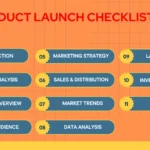What Is a Startup Company?A startup is a newer business, usually small, started by one or more entrepreneurs to develop unique products or services and bring them onto the Market. They Strive by offering a novel product or service; these companies try to answer market demands and fix inefficiencies, aiming for rapid growth and significant returns!
How to Start a Startup Company
Starting a startup needs a clear vision and a strategy plan. Firstly, the founders need:
Conduct market research to validate their idea!
Building a solid business plans. Securing the required funding might include seed capital, angel investors, or venture capitalists. Assembling a capable team, Launching minimum viable products (MVP) to test the markets,
These steps ensure the venture is grounded with a robust foundation for scalability and growth.
Types of Startups ,What Is a Startup Company?
Startups can vary widely depending on their goals and industry sector. Common types include:
Technology Startups Mostly focus on software developments or hardware innovations.
Social Startups: Aims to solve societal issues with enterprise solution
Lifestyle Startups: Founded by individuals who are their bosses in fields they enjoy!
Scalable Startups These aim very high, seek to enter the markets and increase,
Knowing the differences can help potential entrepreneur choose the right type for their ambition.
How Long it’s a Company Considered a Startup
The life cycles of startups aren’t standardized; A company remains a Startup as long it operates under uncertainty and seeks scalable business models! Typically, when the company becomes stable in terms of revenue or if it goes public, it’s no longer considered a startup.
Special Considering
Legal Structure
Choosing suitable legal structures is critical. Startups often begin as sole proprietorships or partnerships, but most transform into Limited Liability Companies (LLCs) or Corporations to protect personal assets and benefits from tax considerations!
Location
Areas play an imperative part in the victory of new businesses. Key areas can offer superior get to gifts, speculators, and brooding assets. Tech startups, for example, benefit from being close to ecosystems like Silicon Valley or Boston.
Advantages and Disadvantages of Startups
Advantage
High growth potential!
Flexibility to innovate!
Attractive to talent looking for dynamic work environments.
Disadvantages
High risks of failure,
Resource limitations,
Initial lack of stability,
What’s the Benefits of Working for a Startup?
Working in a startup can be unique and rewarding; offering:
Rapid learning curves!
Responsibility from the outset,
Opportunities to shape the company cultures,
Potential stock options,
Startup Company Platforms
Platforms like AngelList, Kickstarter, and Product Hunts are pivotal for startups; They provide tools for raising capital, recruiting talent, and marketing products to early adopters.
Start A Company As a Non Resident
Startup Company Ideas
Identifying the right business ideas is often about spotting market gaps or innovative solutions to common problems. Current trends include:
Eco-friendly product lines,
Online education platforms.
Healthcare technology solutions,
Startup Adjectives
Here are some common adjectives used to describe startups:
Innovative
Agile
Scalable
Disruptive
Ground-breaking
Futures Startup
The future of startups lies in sustainability and technology; with advancements like AI and machine learning alongside growing consciousness about environmental issues, future startups will likely be those that can leverage technology to deliver sustainable solutions.
In conclusion, understanding what a startup company entails and the journey of starting one involves much more than an innovative idea! It requires grit, adaptation, and a clear understanding of the market; with this insight, potential entrepreneurs are better prepared to launch successful ventures.
What are some examples of successful startup companies in different industries?
Some examples of successful startup companies in different industries include
- Technology Industry: Airbnb could be a company that works as an internet commercial center for lodging, fundamental homestays for excursion rentals, and tourism exercises.
- Social Impact Industry: TOMS Shoes may be a company that matches each combination of
shoes obtained with a unused match of shoes for a child in require.
- Healthcare Industry: Oscar Health is a technology-driven health insurance company offering individual and small group plans.
What are the most common challenges faced by startup companies?
- Financial Constraints: Securing funding and managing cash flow are significant challenges for startups.
- Talent Acquisition: Finding and retaining skilled employees is often difficult due to budget constraints and competition with established companies.
- Market Validation: Ensuring a demand for the product or service and finding the right target audience can be challenging for startups. Some of the most common challenges faced by startup companies include:
How can a startup company effectively market its products or services to early adopters?
To effectively market products or services to early adopters, a startup company can employ several strategies:
- Identify the right early adopter segment: Understand the target audience and their needs. Early adopters are typically tech-savvy and open to trying new products or services. Define the demographic, psychographic, and behavioral characteristics of this segment.
- Create a compelling value proposition: Communicate the special esteem the item or benefit offers to early adopters. Highlight how it addresses their torment, focuses, or fulfills neglected needs.
- Leverage social proof and testimonials: Early adopters are influenced by the experiences of others. Use testimonials, case studies, and user-generated content to showcase the positive experiences of initial users.
- Build a community and engage with influencers: Cultivate a sense of having a place and restrictiveness by making a community around the item or benefit. Engage with influencers who resonate with the early adopter segment to amplify the message.
- Offer early access and incentives: Provide exclusive early access, discounts, or special incentives to incentivize early adopters to try the product or service.
- Iterate based on feedback: Actively seek feedback from early adopters and use it to refine the offering. Demonstrating responsiveness to user input can build trust and loyalty within the early adopter community.
By implementing these strategies, a startup can effectively connect with and appeal to early adopters, laying a solid foundation for broader market adoption in the future.







